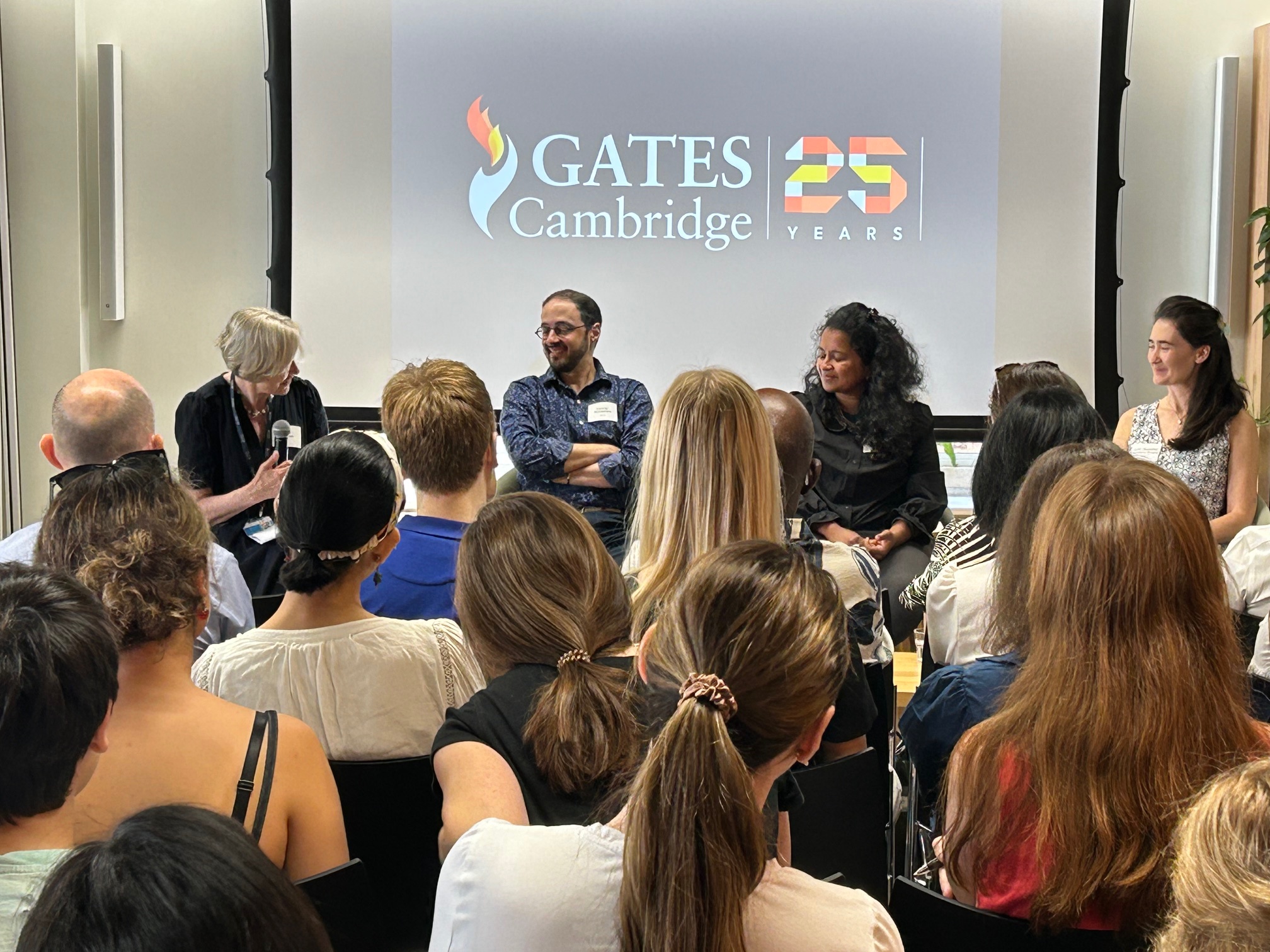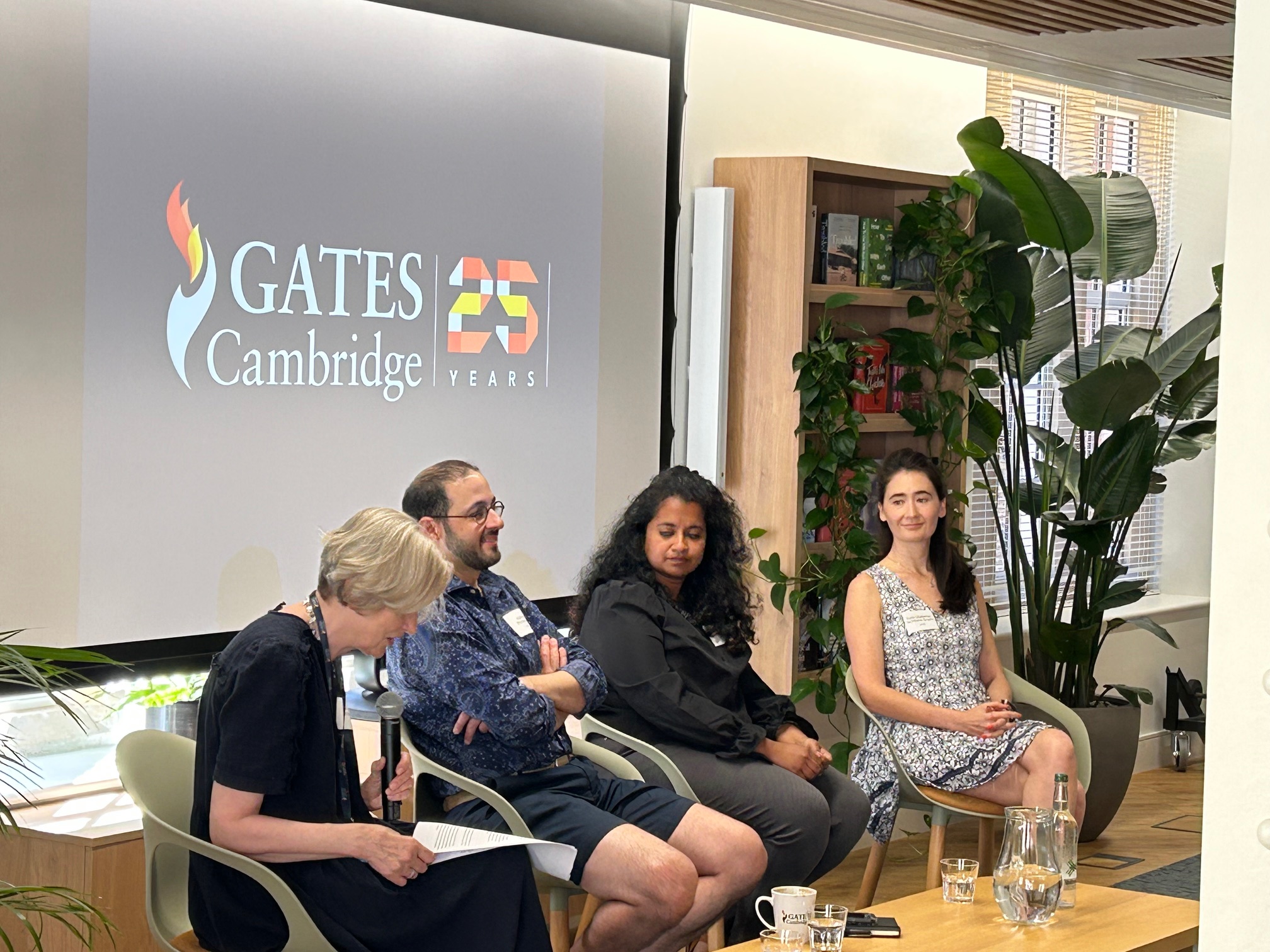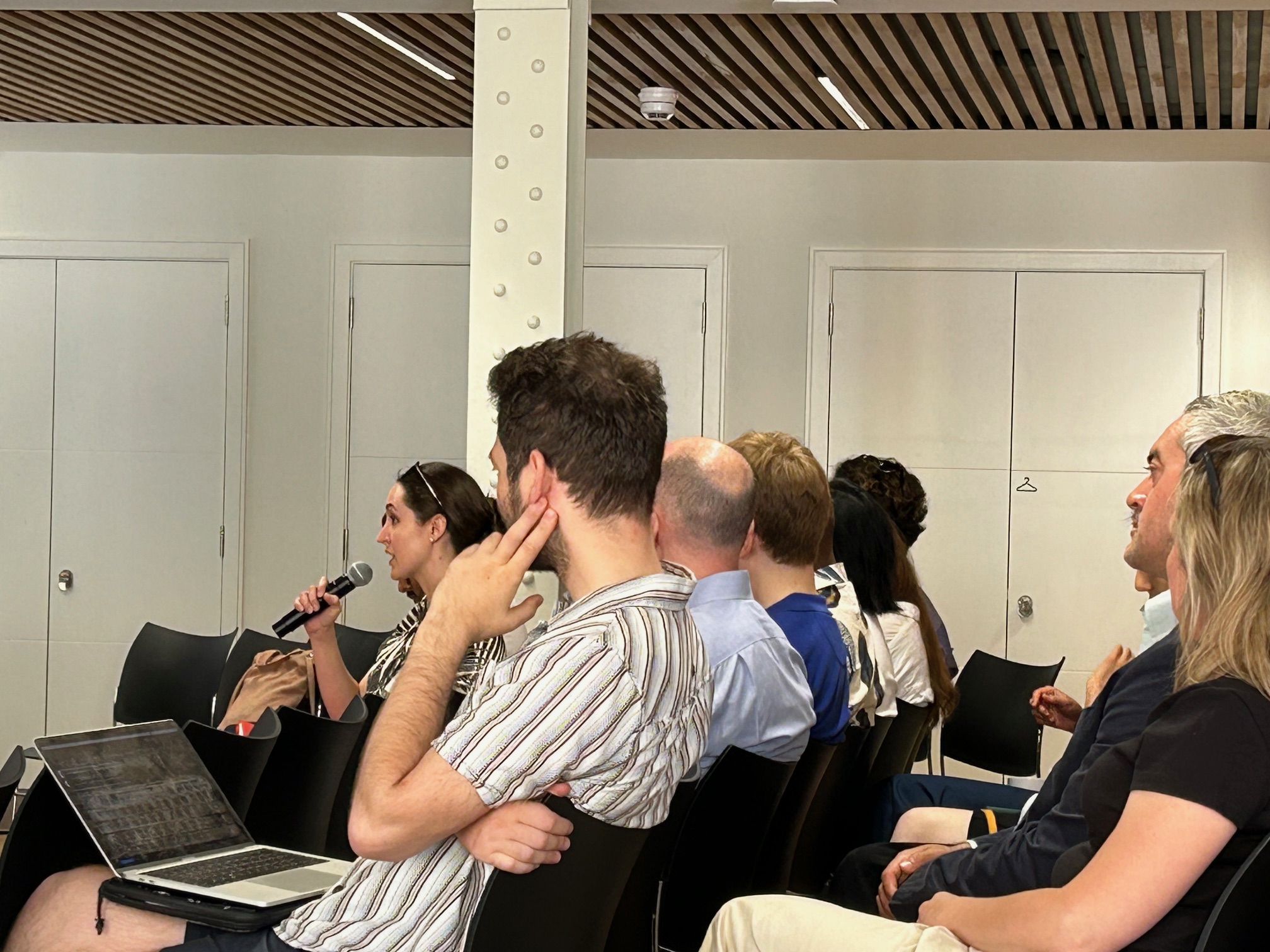
Three Gates Cambridge Scholars discussed how we transition away from climate disaster in a just and equitable way.
Three Gates Cambridge Scholars discussed climate diplomacy and just transition at a 25th anniversary Gates Cambridge Weekend on Saturday.
The panel, chaired by Gates Cambridge Provost Eilis Ferran, covered the economic, social and legal aspects of just transition. Kamiar Mohaddes [2005] is an expert in the macroeconomics of climate change and sustainability at Cambridge University, where he is the Co-Director of the climaTRACES Lab with fellow Scholar Ramit Debnath [2018]. Reetika Subramanian [2019] is a Senior Research Associate at the University of East Anglia, a BBC New Generation Thinker and creator of the podcast Climate Brides, based on her PhD about the impact of climate change-related migration on child marriage in India. Babette Tachibana-Brophy [2018] is Law and Policy Advisor, Ecosystem Governance, at environmental law charity ClientEarth.
Reetika spoke about the need to ensure labour rights for those working in the green economy. She mentioned in particular the large number of female workers in India working in insecure roles in agriculture. Her PhD focused on those working in the water-intensive sugarcane economy and how climate change was increasing economic pressure on families to marry their daughters young so they could enter the labour force.
Babette spoke about the need for a change in our thinking about nature which is often seen as being in a separate realm to humans and for laws to embed a more integrated definition and to incentivise companies and governments to offer better protection.
Kamiar talked about the need for technology transfer across borders and for capital that is not debt-driven. He said COP 2009 had agreed that $100 billion should be transferred from advanced economies to less wealthy economies to facilitate a just transition and added that this figure is low and has not even been reached. Poorer countries need access to the technology which will help them address climate change at marginal cost or free, he stated.
Challenges to a just transition
 The event, held at Bill Gates Sr. House, was attended by Scholars from a range of cohorts and disciplines.
The event, held at Bill Gates Sr. House, was attended by Scholars from a range of cohorts and disciplines.
They heard from about how carbon credits are often viewed as a ‘silver bullet’. Babette mentioned the case of Liberia where a private company asked the government to sign a 60-year agreement to protect a significant amount of their forests. The agreement meant that people would be locked out of their own land. She said it is important that the carbon market is properly regulated and that deals are done in an equitable way that includes local people who are affected.
Kamiar added that one problem is that financial institutions, like many politicians, are focused on the short term and private companies’ main priority is their bottom line. “The incentives just aren’t there,” he said. Babette spoke about how the law could be used to increase corporate liability for climate-related issues, including expanding directors’ duties and companies’ extra-terrestrial liability. Recent judgements show that it may be possible to hold companies liable historically. This could change how boards view the risk of potential projects, she said. “We are seeing a shift,” she said.
Reetika said labour legislation needs to change too to encompass all workers, including those employed informally. Many women working in the Indian agricultural sector are on no or very low wages.
Kamiar said the transition needs to be costed out and weighed against the cost of not doing anything – the cost of reconstructing vital infrastructure after massive climate-related disasters.
Questions
 Questions from the audience covered everything from network transfers, tech infrastructure, including maintenance and running of supercomputers, support for NGOs and civil society, a proper growth strategy and the need for investment in education.
Questions from the audience covered everything from network transfers, tech infrastructure, including maintenance and running of supercomputers, support for NGOs and civil society, a proper growth strategy and the need for investment in education.
In summing up, Babette called for stronger laws and more funding of climate litigation plus greater representation of indigenous people at a global level; Reetika said there was a need for more funding of climate adaptation work and the social impact of climate change; and Kamiar called for greater funding of blue sky thinking on climate change and areas other than technical fixes as well as the identification of greater incentives for governments to take action.
The panel event kicked off a weekend of activities, bringing Scholars from across the cohorts together to celebrate the 25th anniversary.












